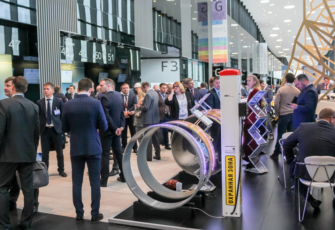
When measuring an event's success, especially as intricate as corporate events and live experiences, tangible metrics such as attendance rate or revenue are undeniably important. Yet, the intangible metric of attendee satisfaction, which can be tapped through effective post-event survey questions, holds the potential to offer unparalleled insights. These insights, in turn, can refine future event strategies, ensuring consistent growth and improvement.
The Significance of Post-Event Surveys
Before diving into the specific questions, it is essential to understand the profound significance of post-event surveys. In strategic ideation and event expertise, capturing real-time feedback is a gold mine. It offers a direct peek into what went right, what could be improved, and areas of potential innovation for subsequent events. By asking the right questions, organizers can shape the direction of their future endeavors, ensuring they resonate better with their audience.
Crafting the Right Questions for Insightful Feedback
- Overall Satisfaction Level: Begin with a broad question to gauge the general sentiment. For instance, "On a scale of 1 to 10, how would you rate your overall experience?" This serves as a baseline for the rest of the feedback.
- Session or Speaker-Specific Feedback: If your event had multiple sessions or speakers, it is useful to get granular feedback. Questions like "Which session did you find the most engaging?" or "Was there a speaker who stood out for you?" can offer session-specific insights.
- Venue and Logistics: The location and logistical aspects are pivotal in the attendee experience. Pose questions regarding the convenience of the venue, quality of amenities, or efficiency of event staff. For example, "Did you find the venue accessible and comfortable?"
- Content Relevance: Content relevance is crucial for educational or informational events. "Did the event content meet your expectations?" or "Were the topics discussed relevant to your professional needs?" can clarify the content's effectiveness.
- Networking Opportunities: For many attendees, networking is a primary motive for attending events. Gauge this with questions like, "Were you provided ample networking opportunities?" or "Did you make meaningful connections during the event?"
- Areas of Improvement: Instead of assuming areas that need betterment, directly ask attendees. Questions such as "What aspect of the event do you think needs improvement for next time?" can be illuminating.
- Likelihood of Future Participation: A clear indicator of the event's success is whether attendees would want to participate again. "Would you consider attending our future events?" can provide a straightforward answer.
- Preferred Communication Channels: As organizers plan for future events, understanding where attendees prefer to get their information can be beneficial. "How would you like to be informed about our upcoming events – email, social media, or other channels?"
- Open Feedback: Always leave room for open feedback. While structured questions are essential, attendees might have specific feedback or ideas that do not fit within them. "Do you have any other comments or suggestions for us?" can capture these miscellaneous insights.
A well-crafted post-event survey is more than just a feedback mechanism. When utilized effectively, it is a tool that can drive the continuous evolution of events, ensuring they cater perfectly to their target audience. By understanding attendee sentiment, preferences, and pain points through these survey questions, organizers can better curate experiences that resonate, engage, and provide value.



